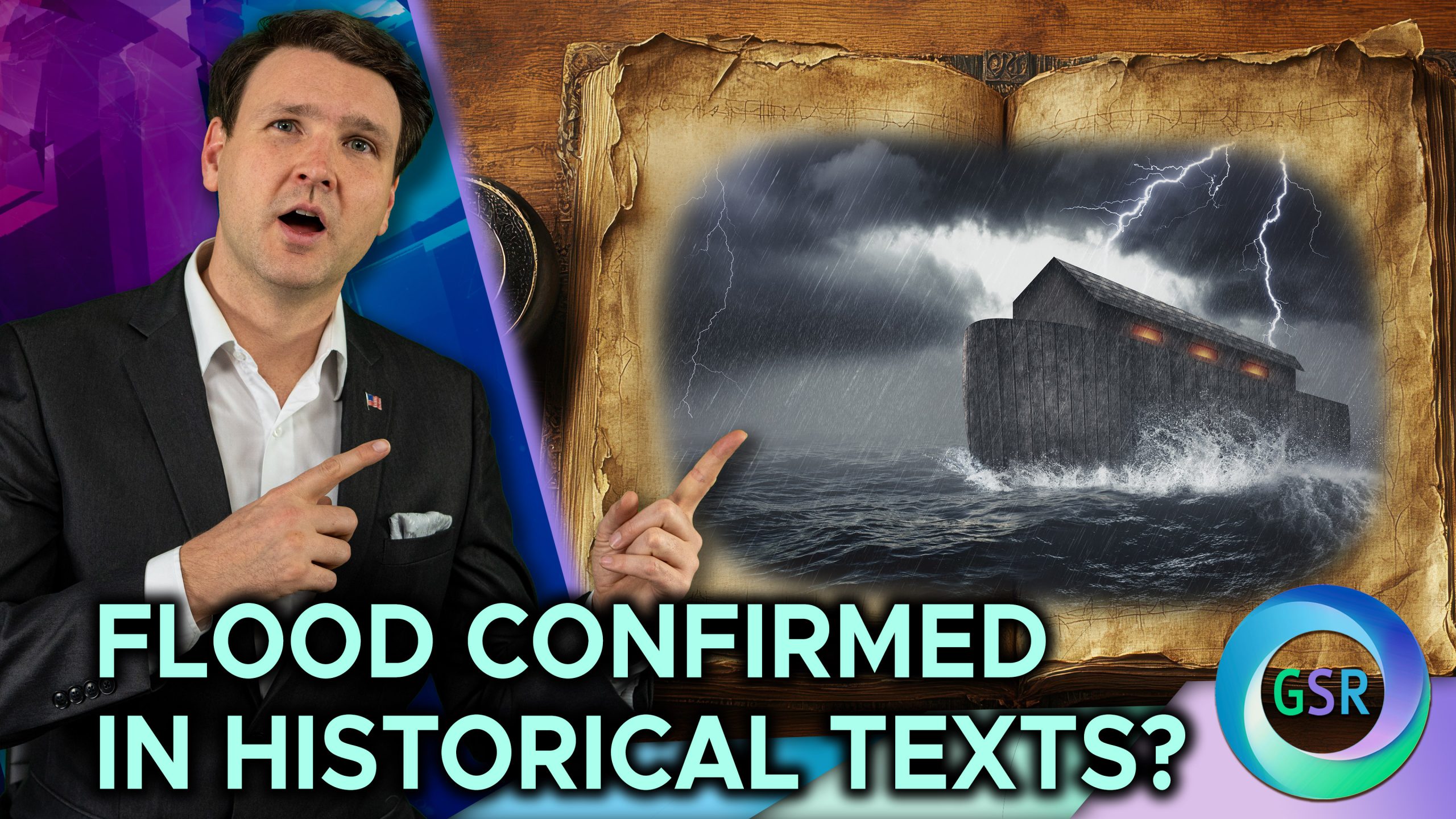There is one event, and one event only, in the history of the world that the entire earth collectively experienced. And that event was a global flood. But with something so catastrophic, so cataclysmic – it couldn’t have actually taken place– or so say the skeptics. Denying this event is seen as normal.
The critics rail against its existence just as aggressively as atheists feel the need to rail against God’s existence. They say it’s folklore, fantasy, foolishness to believe in a global Flood. But is that truly the case?
It’s important to review the historical record before we come to any conclusions. Let’s start with this: In the ancient world, every civilization held myths of a great flood that covered the earth. These stories, found across the globe, from Mesopotamia to Mesoamerica, share striking similarities that should make it obvious they have a common origin. The narrative of Noah’s flood, as described in the Book of Genesis, stands at the heart of this phenomenon, loudly echoing through the legends of diverse cultures. This shared memory points to a historical event that left an indelible mark on humanity, and as we consider the Flood, we will lay out a Scriptural and Historic case that this event truly took place – beyond a shadow of a doubt.
First, what is the Genesis Flood Narrative? According to the Bible, God saw how sinful humanity had become and cleansed the earth with a flood, sparing only the righteous Noah, his family, and a pair of every living creature. Genesis 7:11 describes the deluge: “In the six hundredth year of Noah’s life, in the second month, the seventeenth day of the month, on that day all the fountains of the great deep were broken up, and the windows of heaven were opened.” Therefore, Noah’s Ark was built under divine instruction and became the vessel of salvation amid this cataclysm.
The Jewish historian Flavius Josephus provides additional context in his work, Antiquities of the Jews. He writes, “All the writers of barbarian histories make mention of this flood and of this ark.” Josephus cites Berossus the Chaldean, Hieronymus the Egyptian, and Nicolaus of Damascus, among others, to verify a universal acknowledgment of the flood.
“But maybe this was a backward Old Testament story.” You might say. “What about Jesus? What does He have to say about the Flood?” Well, in the New Testament, Jesus does make reference to the Flood in Matthew 24 comparing the days of Noah to the coming of the Son of Man: “For as in the days before the flood, they were eating and drinking, marrying and giving in marriage, until the day that Noah entered the ark, and did not know until the flood came and took them all away.” His statement underscores the suddenness and totality of this historic event. It was a divine act that reset human history!
Who else mentions this event? The Apostle Peter also reflects on the flood in 2 Peter 2:5, where he describes God as having “spared not the ancient world, but saved Noah, one of eight people, a preacher of righteousness, bringing in the flood on the world of the ungodly.” So, Peter’s account also reinforces the narrative of divine judgment and salvation through righteousness. This is not just an Old Testament story.
In fact, you can also see this event recounted in other historically significant books, such as The Book of Enoch and Jubilees (fragments of both were found among the famed Dead Sea Scrolls). Enoch details the corruption of humanity leading to widespread wickedness. He speaks of God supernaturally warning Noah of the impending flood, saying, “Hide thyself! ” And then revealing to him the end is approaching… and that the whole earth will be destroyed.
Similarly, the Book of Jubilees provides a detailed chronology of events leading up to the global Flood. It also describes the corruption of humanity and the divine decision to cleanse the earth.
The global flood narrative is reaffirmed multiple times throughout the Bible, reinforcing its significance within the Judeo-Christian tradition. In Isaiah 54, God speaks through the prophet Isaiah, referencing the flood in His promise to never again destroy the earth with water. In Hebrews 11, the faith of Noah is highlighted saying that he was divinely warned of things not yet seen and that he moved with godly fear and faith to prepare an Ark for the saving of his household. In 1 Peter, again, the Apostle Peter draws a parallel between the flood and the power of Christian baptism: “…who formerly were disobedient, when once the Divine longsuffering waited in the days of Noah, while the ark was being prepared, in which a few, that is, eight souls, were saved through water. There is also an antitype which now saves us—baptism (not the removal of the filth of the flesh, but the answer of a good conscience toward God), through the resurrection of Jesus Christ.”
So, we see a striking pattern across the Biblical and extra-biblical Jewish records of this event. But what about the pagan (or barbarian) record that Josephus cites so boldly? We see mass evidence of the Flood there too! And for many, this record may be even more convincing than the texts already cited.
Because, if this was a true historic event, then after the Flood, as the descendants of Noah dispersed across the globe, the memory of the flood would have traveled with them. And the story of this incredible event would have embedded itself in the myths and legends of the respective cultures that were established by the descendants of Noah.
Each civilization would have adapted the story to fit their unique worldview and religious framework… yet the core elements would remain remarkably consistent. And that is exactly what we see in the cultural histories of those that spread across the face of the earth, and why it matters for our day.
I’m David Rives,
Truly, the heavens declare the glory of God.
The form is not published.

